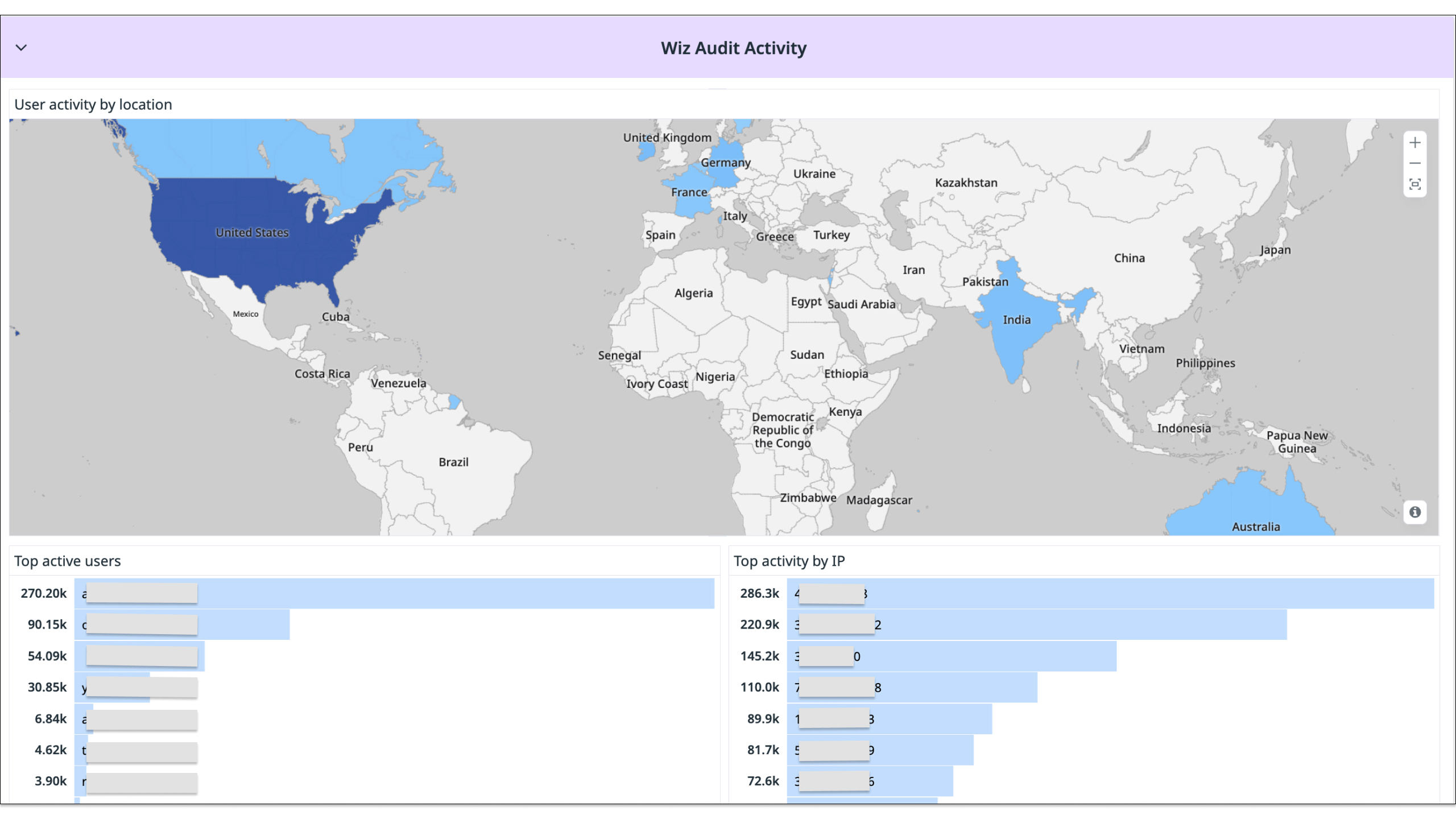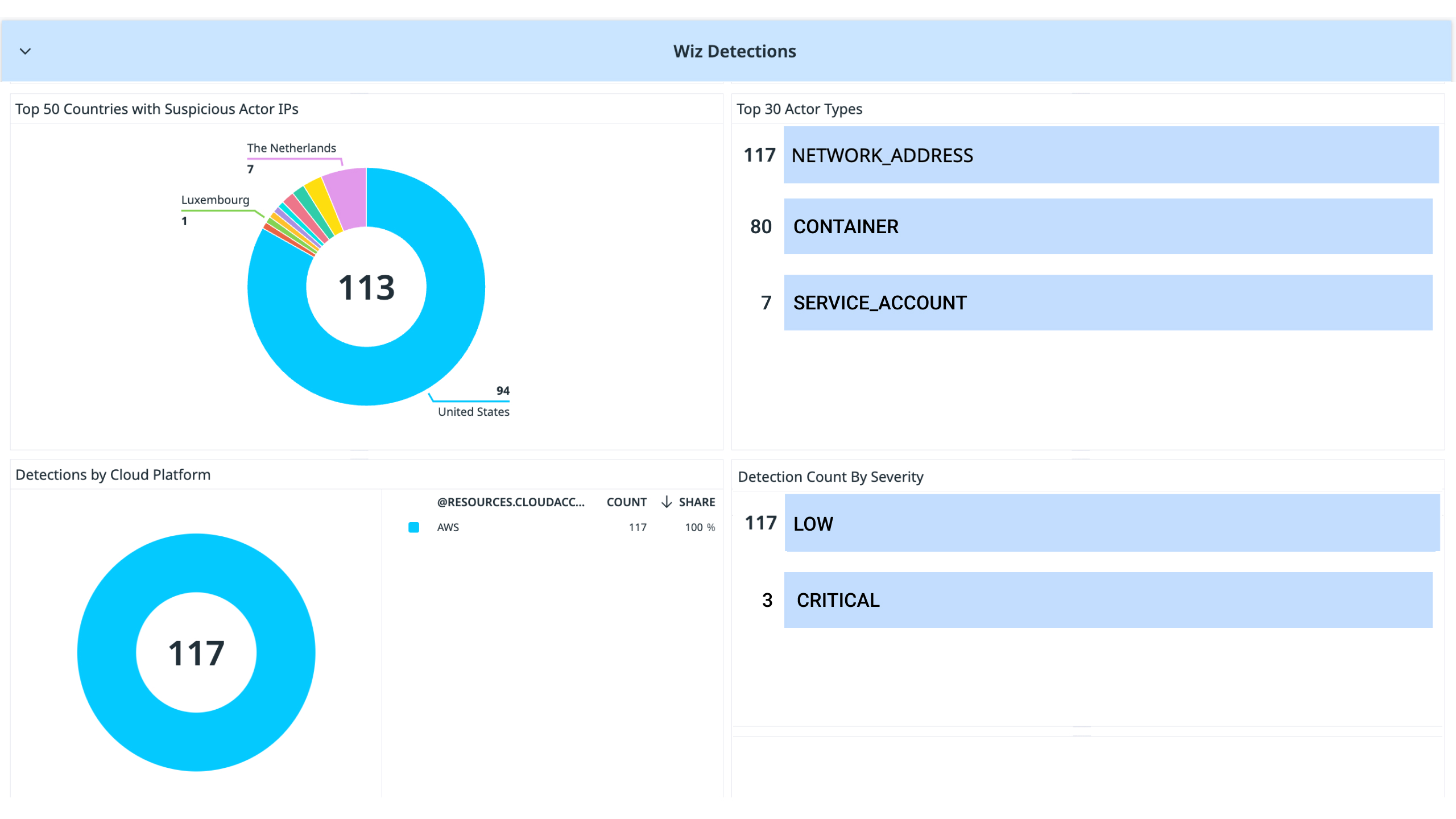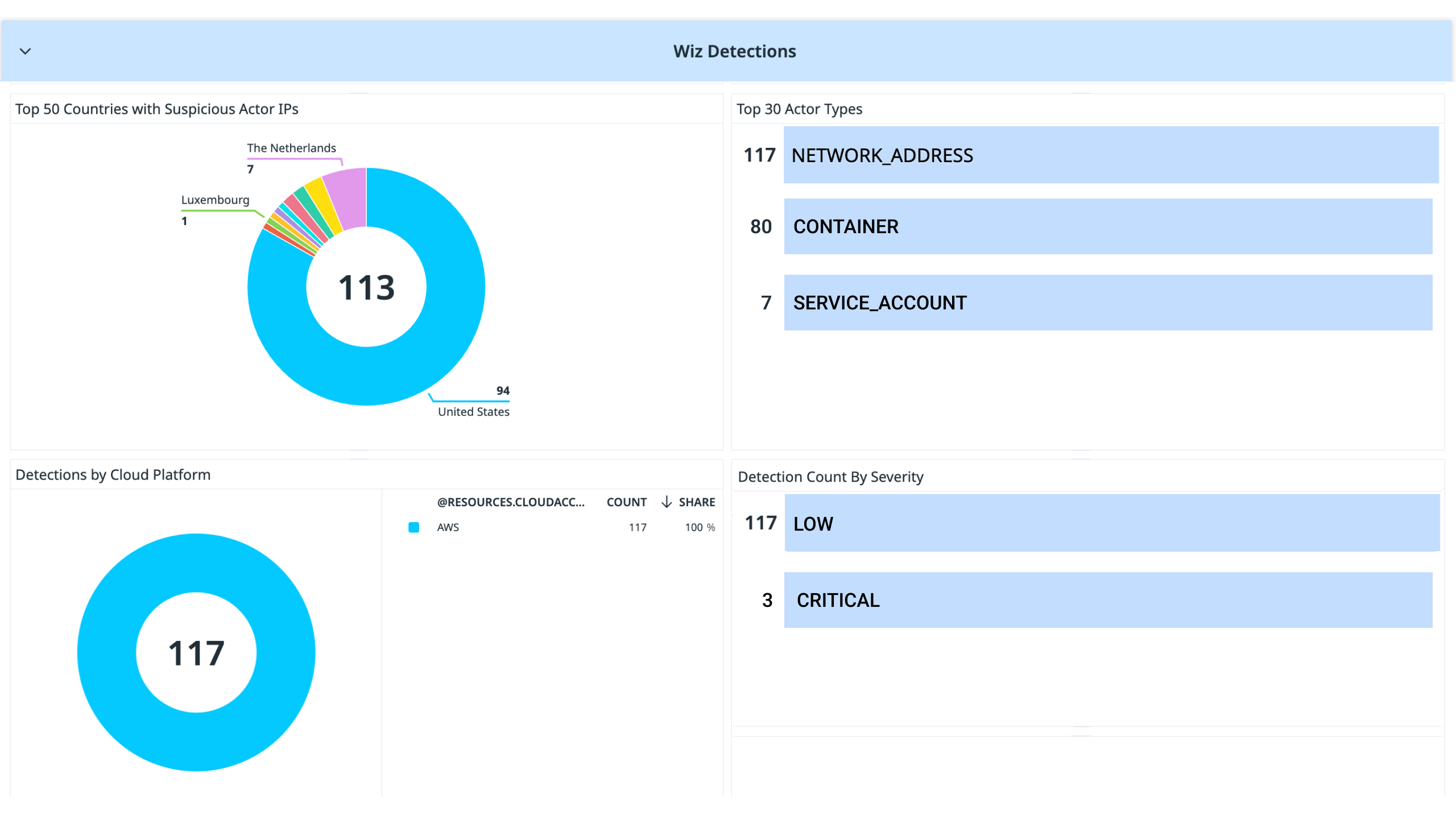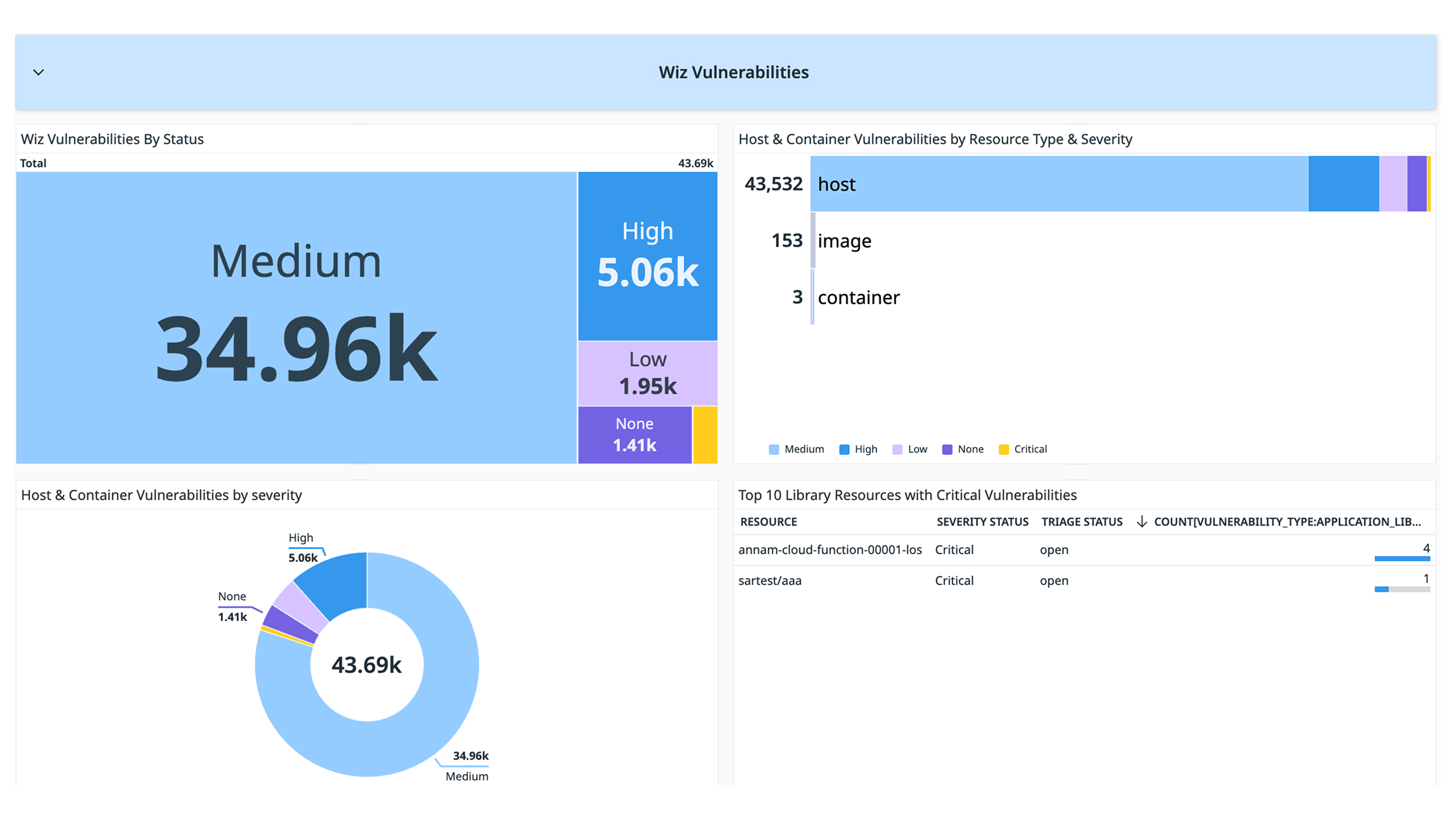- Essentials
- Getting Started
- Agent
- API
- APM Tracing
- Containers
- Dashboards
- Database Monitoring
- Datadog
- Datadog Site
- DevSecOps
- Incident Management
- Integrations
- Internal Developer Portal
- Logs
- Monitors
- Notebooks
- OpenTelemetry
- Profiler
- Search
- Session Replay
- Security
- Serverless for AWS Lambda
- Software Delivery
- Synthetic Monitoring and Testing
- Tags
- Workflow Automation
- Learning Center
- Support
- Glossary
- Standard Attributes
- Guides
- Agent
- Integrations
- Extend Datadog
- Authorization
- DogStatsD
- Custom Checks
- Integrations
- Build an Integration with Datadog
- Create an Agent-based Integration
- Create an API-based Integration
- Create a Log Pipeline
- Integration Assets Reference
- Build a Marketplace Offering
- Create an Integration Dashboard
- Create a Monitor Template
- Create a Cloud SIEM Detection Rule
- Install Agent Integration Developer Tool
- Service Checks
- Community
- Guides
- OpenTelemetry
- Administrator's Guide
- API
- Partners
- Datadog Mobile App
- DDSQL Reference
- CoScreen
- CoTerm
- Remote Configuration
- Cloudcraft (Standalone)
- In The App
- Dashboards
- Notebooks
- DDSQL Editor
- Reference Tables
- Sheets
- Monitors and Alerting
- Service Level Objectives
- Metrics
- Watchdog
- Bits AI
- Internal Developer Portal
- Error Tracking
- Change Tracking
- Event Management
- Incident Response
- Actions & Remediations
- Infrastructure
- Cloudcraft
- Resource Catalog
- Universal Service Monitoring
- End User Device Monitoring
- Hosts
- Containers
- Processes
- Serverless
- Network Monitoring
- Storage Management
- Cloud Cost
- Application Performance
- APM
- Continuous Profiler
- Database Monitoring
- Agent Integration Overhead
- Setup Architectures
- Setting Up Postgres
- Setting Up MySQL
- Setting Up SQL Server
- Setting Up Oracle
- Setting Up Amazon DocumentDB
- Setting Up MongoDB
- Setting Up ClickHouse
- Connecting DBM and Traces
- Data Collected
- Exploring Database Hosts
- Exploring Query Metrics
- Exploring Query Samples
- Exploring Database Schemas
- Exploring Recommendations
- Troubleshooting
- Guides
- Data Streams Monitoring
- Data Observability
- Digital Experience
- Real User Monitoring
- Synthetic Testing and Monitoring
- Continuous Testing
- Product Analytics
- Session Replay
- Software Delivery
- CI Visibility
- CD Visibility
- Deployment Gates
- Test Optimization
- Code Coverage
- PR Gates
- DORA Metrics
- Feature Flags
- Developer Integrations
- Security
- Security Overview
- Cloud SIEM
- Code Security
- Cloud Security
- App and API Protection
- AI Guard
- Workload Protection
- Sensitive Data Scanner
- AI Observability
- Log Management
- Observability Pipelines
- Configuration
- Sources
- Processors
- Destinations
- Packs
- Akamai CDN
- Amazon CloudFront
- Amazon VPC Flow Logs
- AWS Application Load Balancer Logs
- AWS CloudTrail
- AWS Elastic Load Balancer Logs
- AWS Network Load Balancer Logs
- Cisco ASA
- Cloudflare
- F5
- Fastly
- Fortinet Firewall
- HAProxy Ingress
- Istio Proxy
- Juniper SRX Firewall Traffic Logs
- Netskope
- NGINX
- Okta
- Palo Alto Firewall
- Windows XML
- ZScaler ZIA DNS
- Zscaler ZIA Firewall
- Zscaler ZIA Tunnel
- Zscaler ZIA Web Logs
- Search Syntax
- Scaling and Performance
- Monitoring and Troubleshooting
- Guides and Resources
- Log Management
- CloudPrem
- Administration
Wiz
Supported OS
Integration version3.1.1
This product is not supported for your selected Datadog site. ().




Wiz Dashboard - Audit Logs
Wiz Dashboard - Detections
Wiz Dashboard - Threats
Wiz Dashboard - Vulnerabilities
Overview
Wiz is a cloud-native security platform that identifies and prioritizes risks across your cloud environments.
This integration ingests the following data into Datadog Cloud SIEM through the Wiz API:
- Audit Logs: Capture key user activity in Wiz, including login events and all mutation actions (such as create, update, delete), supporting investigations and anomaly detection.
- Issues: Represent active risks detected by Wiz Controls, such as misconfigurations, exposed secrets, identity risks, and toxic combinations. Each issue is linked to a specific resource and includes severity and remediation context.
- Detections: Enables centralized visibility and automated alerting for cloud security risks by ingesting Wiz findings into your existing detection and response workflows.
We also ingest Security Findings into Datadog’s Cloud Security Platform:
Vulnerabilities: Expose weaknesses in software or configuration across cloud resources. Each finding includes metadata like affected packages, versions, severity, and remediation guidance, and is mapped to related issues to help prioritize the most impactful risks.
Configurations: Wiz configuration findings are the issues detected during a cloud security scan that highlight misconfigurations, compliance gaps, and potential vulnerabilities in your environment.
Use this integration to monitor your cloud security posture in real-time, correlate findings with observability data, and accelerate threat detection and response workflows across teams.
Data collection methods and frequency
API-based collection
- Audit Logs: Collected every 12 hours
- Issues (legacy): Collected every 12 hours
- Configurations and Vulnerabilities: Initial backfill followed by daily updates for new or status-changed security findings
Webhook-based collection (real-time)
- Issues (recommended): Toxic combinations and misconfigurations
- Threats: Security threats detected in your environment
- Detections: Security detections requiring investigation
Setup
Configuration
The Wiz integration offers two configuration methods:
- API Configuration: For collecting audit logs, configurations, and security findings
- Webhook Configuration: For collecting issues, threats, and detections in real-time
Follow Wiz’s Datadog integration guide to generate the required values for the Token URL, Query URL, Client ID, and Client Secret fields used to configure the Wiz integration in Datadog.
Copy the values you gathered from Wiz into the matching fields in the configuration table below.
After saving the configuration, verify data collection. Logs should appear within 15 minutes. The initial Security Findings backfill may take some time to process, but should be available within an hour.
API-Based Data
- Audit Logs: View in Log Explorer with
source:wiz - Configurations and Vulnerabilities: View in Cloud Security Management by hovering over Findings and selecting either Misconfigurations or Vulnerabilities, and then searching for
source:wiz
Webhook-Based Data
View in Log Explorer with the following filters:
- Issues:
source:wiz @trigger.source:issue - Detections:
source:wiz @trigger.source:detection - Threats:
source:wiz @trigger.source:threat
If you don’t see your data:
- Verify your log index configuration in Logs > Indexes for
source:wiz*. - For webhook data, verify your webhook configuration in Wiz.
- For API data, verify your service account permissions.
Data Collected
Wiz Audit Logs Wiz Detections Wiz Issues Wiz Threats Wiz Vulnerabilities
Metrics
The Wiz integration does not include any metrics.
Service Checks
The Wiz integration does not include any service checks.
Events
The Wiz integration does not include any events.
Logs
The Wiz integration collects:
- Audit logs (through API)
- Vulnerabilities (through API)
- Issues (through webhook)
- Threats (through webhook)
- Detections (through webhook)
Troubleshooting
Need help? Contact Datadog support or Wiz support.
